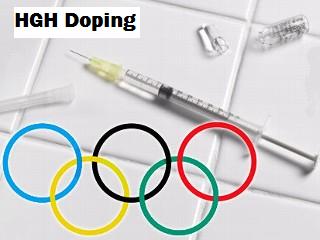Since 2004, HGH has been included in the banned substances of major sporting leagues. Its use by athletes was prohibited due to its supposed risks. From 2004 to present, the issues regarding the substance barely subsided. The first reason is because accurate testing for HGH remains to be non-existent. There have been claims that a specific blood testing procedure has the ability to trace HGH supplementation. But the validity of such a procedure is still questionable to this day.
HGH Testing Procedure
Sporting league officials and the members of the anti-doping team are continuously pushing for studies as well as the discovery of a clearly effective testing system. They say they just cannot put the issue to rest without giving it a serious fight.

HGH Doping
Just recently, anti-doping officials in the United Kingdom are finding renewed hope when one rugby player by the name Terry Newton admitted to using HGH as a performance enhancer and tested positive for it. They are already claiming that blood testing is an accurate way of ruling out HGH use. The members of the union of league players think otherwise. They say that one positive result cannot validate thee testing procedure. The government needs to make further studies before a particular testing procedure gets their approval.
Among all the performance-enhancing drugs banned by numerous sporting leagues, HGH proves to be most popular. That is because it is widely available in the market as a legal supplement. Some medical practitioners even make HGH prescription. That’s why its abuse cannot be avoided, especially among athletes who can benefit best from the substance’s performance-enhancing, muscle-building properties.
The problem is that accurate HGH testing is still nonexistent. There are testing procedures by way of urine sampling and blood sampling but their results are not 100% accurate. One of the stumbling blocks is the fact that HGH is a naturally occurring substance in the body. When you do HGH testing, you cannot possibly measure which amount is supplemented and which is produced naturally.
This is where scientists are pouring out their time and effort. They do not stop working out the procedure to make it produce accurate results. Until they are able to find a fool-proof testing system, they will not be able to control the use or supplementation of HGH, especially among athletes.
Is HGH Use Bad?
Meanwhile, continued use of HGH supplement was observed as numerous products containing the “miracle hormone” is widely distributed in the market. That is because growth hormone deficiency is considered a valid health problem that needs to be addressed. For adults who have known deficiencies of HGH and who are suffering from it, prescribed doses of HGH has been given.
HGH is not bad all around. In fact, its known benefits to the body are quite impressive. It can help you attain the youthful glow even at a later age. It helps maintaining your body’s composition. It helps in providing potent antioxidants that battle out the free radicals. It is very significant in a process called cell regeneration. Not only athletes but everyone can actually benefit from HGH use.












I don’t think that using HGH is bad unless you are a professional athlete getting paid big bucks for your “skill”.